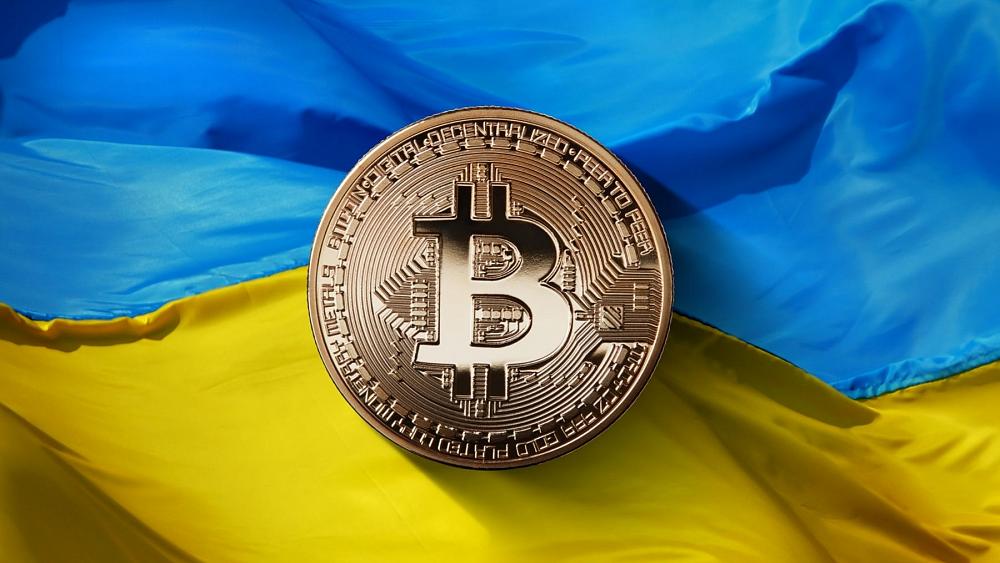Ukraine Allegedly Eyes Bitcoin Reserves in Bold Crypto Policy Shift
15.05.2025 18:00 2 min. read Alexander Stefanov
Ukraine is reportedly drafting legislation that would allow it to officially add Bitcoin to its national reserves—potentially making it one of the first countries to do so.
The news, first reported by local outlet Incrypted, cites Member of Parliament Yaroslav Zhelezniak, who confirmed that the bill is in development. While the proposal is still being finalized, Zhelezniak noted plans to introduce it in parliament soon.
The move aligns with Ukraine’s increasing embrace of digital assets. Ranked among the top countries for crypto adoption in a 2024 Chainalysis report, Ukraine has become a key player in the global crypto space. Public records show that Ukrainian officials collectively hold over 46,000 BTC, worth around $5 billion.
Amid the war with Russia, the country has received millions in crypto donations and accelerated efforts to build a regulatory framework. A new tax proposal is also under review, which could impose a 5%–10% levy on crypto transactions to support public spending, particularly for defense and emergency relief.
Global exchange Binance is reportedly advising Ukrainian officials on building a Bitcoin reserve. According to Kirill Khomyakov, Binance’s regional lead for Central and Eastern Europe, the exchange backs the initiative but acknowledges that substantial legal revisions are needed before implementation.
Binance’s involvement in Ukraine mirrors its strategy elsewhere, including in Kyrgyzstan, where it is helping shape crypto policy and promote digital finance education. CEO Richard Teng recently revealed that multiple governments are in talks with the platform about building sovereign digital reserves.
-
1
Bitcoin Whales Accumulate as Long-Term Holders Hit All-Time High
03.07.2025 21:00 2 min. read -
2
Public Companies Outpace ETFs in Bitcoin Buying: Here is What You Need to Know
02.07.2025 12:30 2 min. read -
3
Arizona Governor Vetoes Bill, Related to State Crypto Reserve Fund: Here Is Why
02.07.2025 16:00 2 min. read -
4
Crypto Inflows hit $1B Last Week as Ethereum Outshines Bitcoin in Investor Sentiment
07.07.2025 20:30 2 min. read -
5
Robert Kiyosaki Buys More Bitcoin, Says He’d Rather Be a ‘Sucker Than a Loser’
02.07.2025 22:00 1 min. read
Ethereum Sparks Altcoin Season as FOMO Shifts Away From Bitcoin
Traders are rapidly shifting their focus to Ethereum and altcoins after Bitcoin’s recent all-time high triggered widespread retail FOMO.
BSTR to Launch With 30,021 BTC, Becomes 4th Largest Public Bitcoin Holder
BSTR Holdings Inc. is set to become the fourth-largest public holder of Bitcoin, announcing it will launch with 30,021 BTC on its balance sheet as part of its public debut.
Altcoins Gain Momentum as Bitcoin Dominance Drops to 61.6%
The cryptocurrency market is experiencing a notable shift in capital flows as Bitcoin’s market dominance has dropped to 61.6%, marking a 2.36% decrease.
France Eyes Bitcoin Mining to Solve Surplus Energy Challenges
French lawmakers have introduced a groundbreaking proposal that would turn excess electricity from energy producers into a valuable digital asset—Bitcoin.
-
1
Bitcoin Whales Accumulate as Long-Term Holders Hit All-Time High
03.07.2025 21:00 2 min. read -
2
Public Companies Outpace ETFs in Bitcoin Buying: Here is What You Need to Know
02.07.2025 12:30 2 min. read -
3
Arizona Governor Vetoes Bill, Related to State Crypto Reserve Fund: Here Is Why
02.07.2025 16:00 2 min. read -
4
Crypto Inflows hit $1B Last Week as Ethereum Outshines Bitcoin in Investor Sentiment
07.07.2025 20:30 2 min. read -
5
Robert Kiyosaki Buys More Bitcoin, Says He’d Rather Be a ‘Sucker Than a Loser’
02.07.2025 22:00 1 min. read


